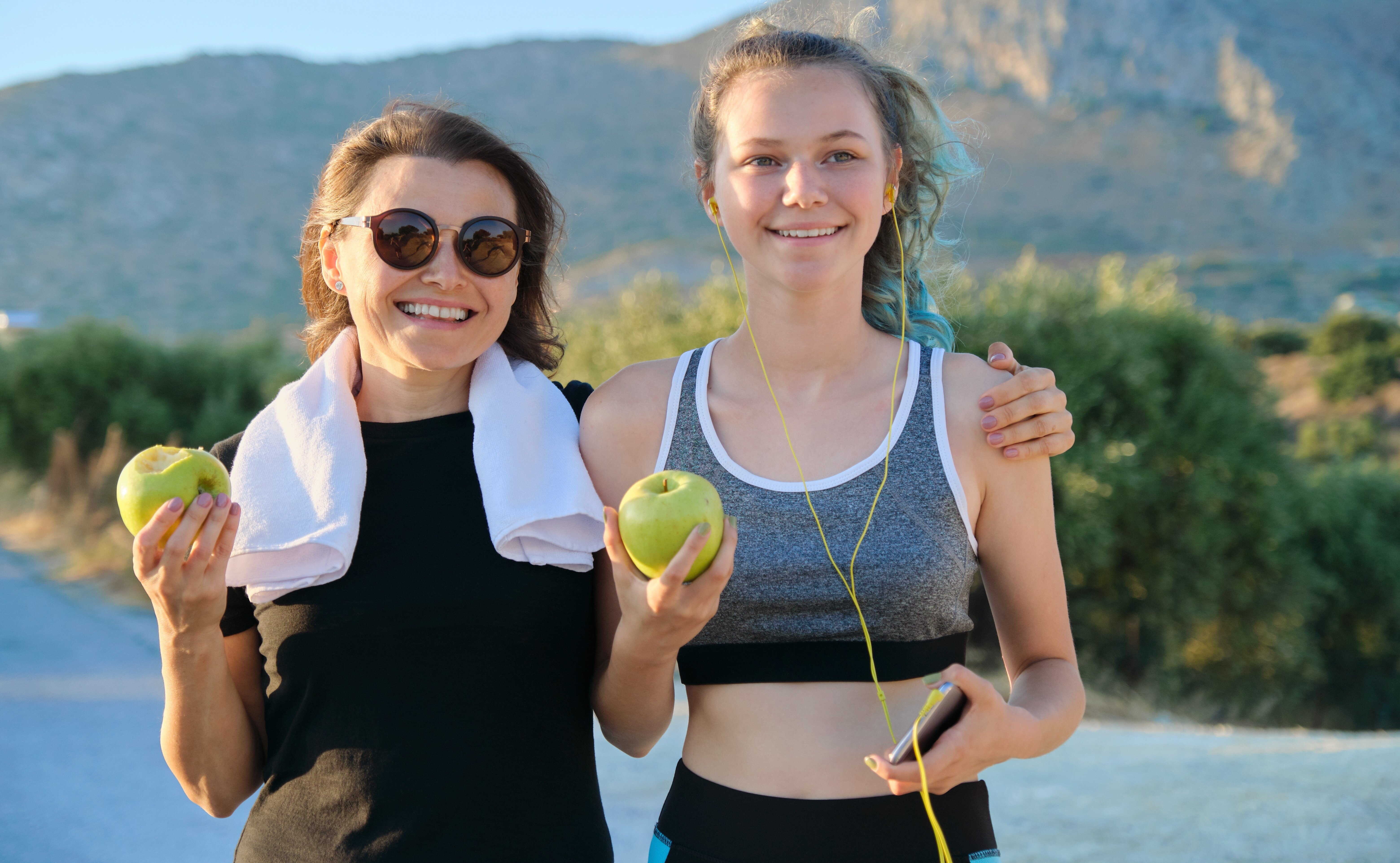Navigating Teen Athletes' Appetite Extremes: A Guide for Parents

Sports parents, supporting your teen athlete through the rigors of training and competition is a balancing act. Managing their appetite is a challenge we encounter frequently! Teen athletes often experience appetite extremes, ranging from insatiable hunger to a lack of interest in food. Understanding these fluctuations and knowing how to respond can help maintain their health and performance.
Extreme 1: “The Bottomless Pit”
Your teen seems to be constantly hungry, consuming vast amounts of food. This ravenous appetite can be attributed to the high energy demands of their sport, a growth spur, too many empty calories, or genetics. While it's important to ensure they get enough calories to support their activity level, there are a few key strategies to manage this extreme:
Ensure meals include a mix of protein (P), carbohydrates (C), and healthy fats (F). This combination provides sustained energy and helps keep them full longer. I often tell the athletes I work with imagine we stamp “PFC” on your forehead! This means that each meal and snack will include P+F+C.
Stock up on nutritious snacks like nuts, yogurt, lots of fruit including avocado, and whole-grain crackers or pita chips. These can curb hunger between meals and provide the energy needed to train and compete well.
Sometimes, thirst is mistaken for hunger. Encourage your teen to drink water regularly throughout the day. If they say “I try to drink water but I forget”, fear not! (email me or book a call for specific strategies).
Consistency is key. Make this a priority: plan ahead to achieve regular meal times and snacks: then they’ll avoid extreme hunger (wanting to eat a horse), sustain their energy, and even concentrate and learn better.
Extreme 2: “My stomach hurts if I eat”
Conversely, some teen athletes may lose their appetite due to stress, fatigue, or even the physical demands of intense training. Many of them (including yours truly when I was a teen athlete) don’t want to mess up their training by getting an upset stomach – and eating close before practice or eating certain things can upset their stomach. This lack of interest in food can be concerning, as it may lead to nutrient deficiencies, a high risk of injury, and decreased performance. Please refrain from a mistake I have often made: insisting and offering them 10 different things (growing more desperate with each attempt) when they clearly stated they’re not hungry!
Here are some ways to address this issue:
Offer a variety of easy-to-eat and yummy-looking foods. Smoothies (done smartly) are a great way to pack in calories and nutrients without feeling too heavy. Try also cooking something they like and make sure it smells delicious as they walk in the door.
Whether it’s a bit of watermelon, half a banana, a few grapes, or oats (all things that are super easy on the stomach), making time to eat a bit will start their day off well and, as they train and study better, they will enjoy these benefits and be open to eating a little more.
Small, frequent meals are more manageable for kids who don’t have a big appetite. This approach ensures a steady intake of nutrients.
Focus on nutrient-dense foods like avocados, nuts, seeds, whole grains (including bread, pasta, and even some types of pizza!), and lean proteins. You may need to reduce fiber strategically if your child gets full too quickly (yes, you read correctly).
Basic Tips for Both Extremes
- Monitor Health: Keep an eye on your teen's overall health, weight, and performance. Any significant changes may warrant a visit to the doctor.
- Reduce the Stress Around Food: “Stress-free, Healthy Eating” is not an oxymoron, it’s the name of the game! Make sure YOU achieve it, too, if you hope your student-athlete does.
- Open Communication with Less Judgement and More Love: Talk to your teen about their appetite and eating habits, but more importantly, Listen to them (listen to Understand, not to Respond). Having their parents truly understand their feelings and challenges can make them feel important and that they’re not being silly or incompetent. This will contribute to a stress-free environment, where the whole family can envision learning and applying nutrition concepts as a positive project.


